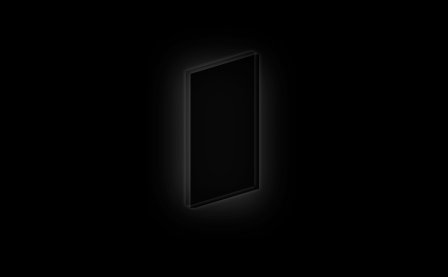Noise is often synonymous with destruction. We associate noise with demolitions, collisions, and explosions, and also with subtler negations. Helen Scarsdale Agency label owner Jim Haynes, for instance, creates his own washed-out suites, and he describes the act simply: “I rust things.” In contrast, Francisco Meirino’s Surrender, Render, End, released on Helen Scarsdale, resists dwelling on decay, presenting collages of blasted sound that are as inviting as they are harsh. While his pieces expose and manipulate liminal and extreme sounds — screeching feedback, buzzing electronics, many other things harder to parse — they often swaddle as much as they corrode. Drones inherently ground listeners in a static moment, carving out spaces; if noise albums are most often wrecking yards or torture chambers, Meirino’s spaces are mechanical wombs, amniotic bubbles whose only threat is that they will eventually burst.
Meirino, a Swiss sound artist who has been active in musique concrète since the early 1990s, says he’s driven by a fascination with “electro-acoustic dialectics” and that his work is “unremittingly engaged in a pugilist conflict between art and accident.” It’s the combination of art and accident — and, perhaps relatedly, the organic and mechanic — that helps him create such vivid spaces, the fritzing and whirring entwined with human voices, rolling marbles, and squeaking bathtubs.
But the electronic and acoustic elements are welded together so seamlessly they don’t really generate much tension. Instead, organic and inorganic elements hang in a fragile balance. “End” features requisite droning electronic sounds as well as a collage of clipped, throaty vocal sounds, the traces, it seems, of actual words. This recontextualized human sound adds organic texture to the humming coils and vacuum tubes, a wet membrane grafted over wires. On “Arguments for Laziness,” we’re swathed in refrigerator drones, while beeping buoys and soft voices undulate in the background — not a bleached, distorted landscape so much as an ASMR paradise. The album’s dramatic peak is a section of the final piece, “Surrender,” on which Meirino (apparently) squeezes a balloon over the microphone, yielding sounds both unsettlingly intestinal and oddly pleasing.
“Render” begins as a low, distorted hum before becoming engulfed by a pattering crackle — rain, or percolating coffee, perhaps, but most likely the sound of rendering fat, popping in a pan. Rendering is a process both visceral and mechanical, the meeting of meat and machine in an act both destructive and transformative. In these moments, Meirino sets himself apart from sound artists fascinated principally with decay, the natural, inevitable destruction all artificial things face. Instead, he pairs the natural and artificial to restage the natural order of life as a not-totally-animal, not-totally-mechanical process, from incubation to disintegration.
More about: Francisco Meirino



